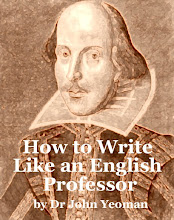
This question has understandably vexed the excellent churchwarden at St Mary's Church, Ivinghoe, Jamie Scott. He e-mailed me last week (when I was enduring a reluctant 'holiday' in the rain-soaked streets of Avignon) that his parishioners were in a storm about the issue. Was the brothel in 1623 sited (heaven forfend) right beside the church?
No. It was not.
First, we know that Yeoman gave his desperate speech to save Jess's life on 8th June 1623 in the Ivinghoe courtroom that was also its town hall.
Now, that 16th century hall still exists. (It is currently the village library.) It fronts Ivinghoe High Street, twenty paces south of the 16th century brewery (now a youth hostel) which was almost certainly owned by Brun Purkiss until early May 1623 when Sogwit gave it to Filsmiro.
Second, Yeoman states clearly that, after the collapse of Jess's trial, the joyful company proceeded to the Swan tavern across the village green. This would locate the tavern some twenty paces west of the modern Kings Head restaurant on the modern Horton Road.
Third, Hippo clearly refers to the Ivinghoe brothel in his defence of Jess as a place 'adjacent' to the Swan. So the brothel was not immediately beside St Mary's Church. Jamie and his parishioners can relax. It was almost certainly a few paces either west or east of the tavern.
I think the owner of the modern Kings Head restaurant can relax too. But I do believe the present inhabitants of the cottages on Horton Road that face the green should take a close look in their cellars. They might chance upon many a bawdy relic, buried beneath four centuries of dust.

On behalf of the residents of Horton Road, Ivinghoe, I wish to object in the strongest terms to your uninvited slur upon our reputation and property values with your ill-researched conjecture that one of our houses (unspecified) might have been a 17th century brothel. I/we demand that you remove this post in a timely fashion and make a full apology to the village.
ReplyDeleteThis comment has been removed by the author.
ReplyDeleteSir, did I remove the post I could not make an apology without referring to it and thus compounding once again the libel! (If it were a libel.) Methinks your property values can only be enhanced by the imputation that your retro-kitsch hovels might have a past putatively more colourful than their present chiaroscuro inhabitants.
ReplyDeleteUh, John, was that a flame? Are we allowed to do that in academia?
ReplyDeleteYes and no. But an insult must be understandable before it can give offence. And (perhaps you have noticed) I am nothing if not obscure.
ReplyDeleteBTW: do you have no work to go to?
We are placing the matter in the hands of our solicitors.
ReplyDeleteMr Ficelle, may I remind you that yours is the worser offence? To publicly accuse a distinguished academic of 'ill founded research' is a scurrility redressable in law. Never insult a professor unless your libel insurance is paid up.
ReplyDeleteMine is.
I'm keeping outta this...
ReplyDelete